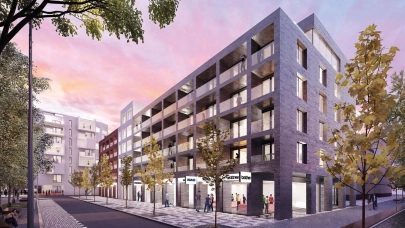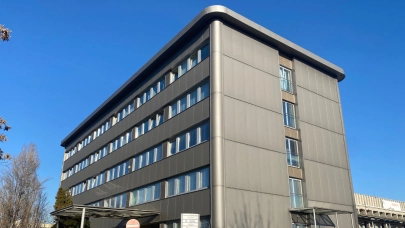
The share of renegotiations of lease contracts on the Czech office market is increasing, currently hovering at around 50% of all concluded transactions. A growing number of companies are preferably extending their existing lease rather than moving to new premises after their lease expiry, reports Colliers.
This is due both to the lack of alternative premises and the high costs of fitting out and equipping new ones. Renegotiations could have been observed since 2020, the pandemic being the main reason followed later by a low supply of alternative space and for needs to achieve rent and cost-saving measures. Moving to new offices comes with significant costs for fit-outs in new spaces, which are most often around CZK 25,000 (€1,000) per sqm, including furniture and technology.
"The Czech office market is currently experiencing very low construction activity. Especially in premium locations, such as some parts of Prague, there is a noticeable lack of modern, certified buildings that would fit most companies’ ESG strategies. These businesses are therefore facing increasing difficulties in finding alternatives to their existing space, and renegotiation is the only option for them. Low vacancy rates and a shortage of space may put pressure on rental prices in the coming period, resulting in a market where the landlord will be in a stronger position than the tenant," adds Jana Vlková, Director of Office Agency and Workplace Advisory at Colliers, adding that this situation is also leading to longer contract durations.
On the one hand, tenants are demanding greater contractual flexibility, i.e., shorter notice periods for responses to uncertainties, and on the other hand they prefer stability and avoiding the costs and risks of moving. As a result, standard five-year contracts are now often being replaced by contracts of up to seven years. Companies most often stay in one space for two or three lease cycles. "Companies that need maximum flexibility in terms of the size or length of the lease are more often moving to shared office centres and co-working spaces," explains Jana Vlková.
The current situation puts landlords in a slightly more advantageous position. However, they do have to make an effort to win tenants by nurturing relationships with existing clients actively and offering them sufficiently attractive incentives to stay. This could include financial contributions, modernisation of premises or greater contractual flexibility. Landlords should also take into account the cost of vacancy - the period when the premises are empty.
Although a high proportion of renegotiations is evident across the Czech Republic, the reasons for this vary from region to region. In Prague, the trend is strongly influenced by the lack of new premium space and high relocation costs. Particularly, in desirable locations such as Karlín, Brumlovka or Palmovka, where vacancy rates have fallen below 4%, supply is very limited. Lower development activity and the fact that 15 of the 20 largest transactions since 2023 have been renegotiations confirm this situation. Tenants are often opting for lease extensions to stay in a good location and to negotiate investment into upgrading the space.
In Brno, with more active construction and higher vacancy rates, tenants theoretically have more options for relocation. The high proportion of renegotiations indicates either a high level of satisfaction with existing buildings, significant cost sensitivity, or a more proactive approach by landlords to retain tenants due to greater competition. In Ostrava, renegotiations could also be motivated by an overall lack of suitable alternative spaces or strong ties to existing buildings.



